Blog
India’s insurance market, valued at USD 131 billion, is currently the 10th largest in the world, contributing to 1.9% of global premiums. Over the past two decades, private sector involvement, enhanced distribution, and operational efficiency have driven significant growth. Projections indicate that by 2032, India will become the sixth-largest insurance market. Despite being a developing market, India has the potential, particularly in non-life insurance, to surpass global competitors. Factors such as a young population, rising incomes, robust economic growth, digital technology, and regulatory measures are propelling this growth trajectory. The Insurance Regulatory and Development Authority of India (IRDAI) is pushing this agenda through its vision of “Insurance for All” by 2047, which aims to increase penetration, ease business operations, and attract investments.
“Insurance for All: Vision 2047” was also the theme of the Bombay Chamber Insurance Summit, which addressed crucial topics such as risks, distribution models, and the role of technology in the industry. The Summit was supported by PwC, the Knowledge partner, Shriram Life insurance, India Insure and Medi Assist, who were the Associate Sponsors and Unilight, Prudent, Insurance Dekho and Marsh India Insurance Brokers, who were the Supporting partners.
In his welcome address, Sandeep Khosla, Director General of the Bombay Chamber of Commerce & Industry, spoke about the Chamber’s role in liaising between the business community and regulatory bodies to improve the ease of doing business through events such as the Insurance Summit.
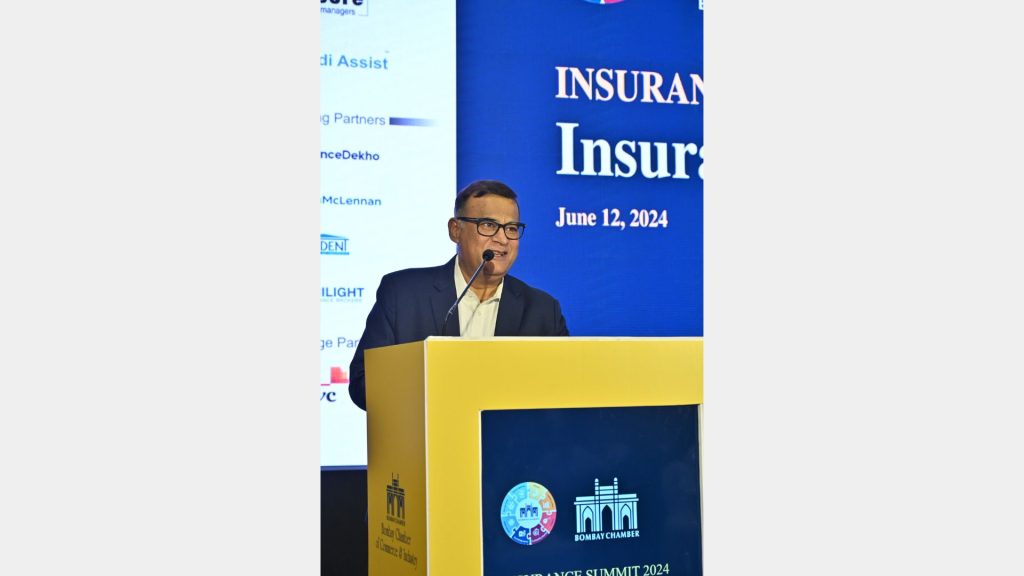
Praveen Vashishtha, Former Co-Founder of Howden Insurance Brokers India, Chairman of Howden Asia, and Member of the BFSI Committee at the Bombay Chamber, set the theme for the Summit, underscoring the market’s transformative potential. Vashishtha discussed the Indian insurance market’s key features, including its young population, low insurance awareness, and regulation. He noted the need for improved operating processes and ecosystem refinements. Challenges such as India’s low insurance penetration rate of 4%, compared to the global average of 7%, and the significant protection gap in non-life insurance were highlighted. He emphasised the importance of property insurance in urbanising cities, the need for granular data in general insurance, and wider reach for life insurance. He also spoke about the transformative role of emerging technologies like AI in catering to digitally savvy Millennials and Gen Z.
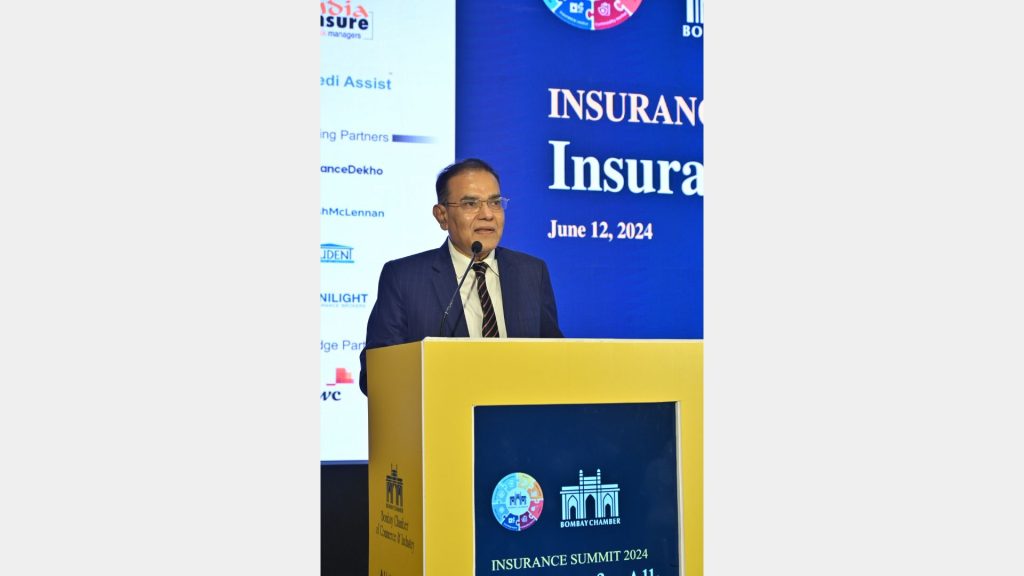
Delivering the keynote address, Shri B. C. Patnaik, Member Life IRDAI, discussed the future trajectory of the insurance industry and regulatory measures supporting growth. He stressed that insurance should be as widely available as mobile phones to achieve the vision of “Insurance for All” by 2047. Highlighting the low current insurance coverage in India compared to global standards, he noted that only 25% of Indians have some form of insurance versus 47% globally. Shri Patnaik pointed out that housing insurance rights extend to 70 crore people, and Ayushman Bharat covers 50 crore, both funded by the government. He emphasised that insurance should be seen as a developmental necessity rather than just a regulatory tool, and called for easing regulations to improve accessibility. He highlighted the financial strength of the Indian insurance market, particularly during the COVID-19 pandemic, noting its significant payouts which underscore its societal contribution. Highlighting the need for simplified insurance processes, Shri Patnaik advocated for making insurance more accessible to mitigate economic shocks and support India’s growth potential.
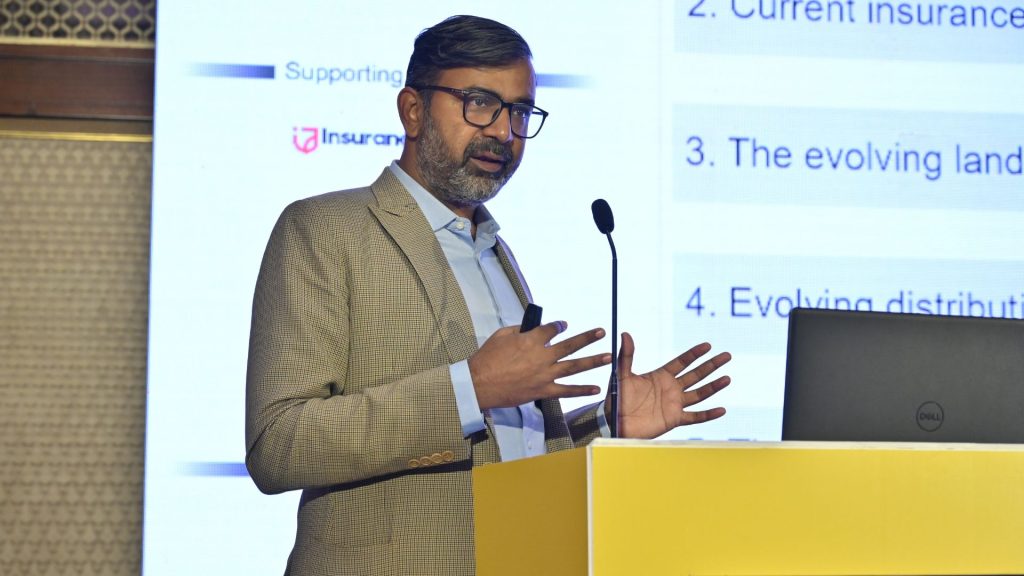
A position paper by Knowledge Partner PwC, “Insurance for All by 2047: The Role of Distribution Models, Products, Technology, and Ecosystem Players,” was unveiled at the event, detailing the challenges and opportunities within India’s insurance landscape.
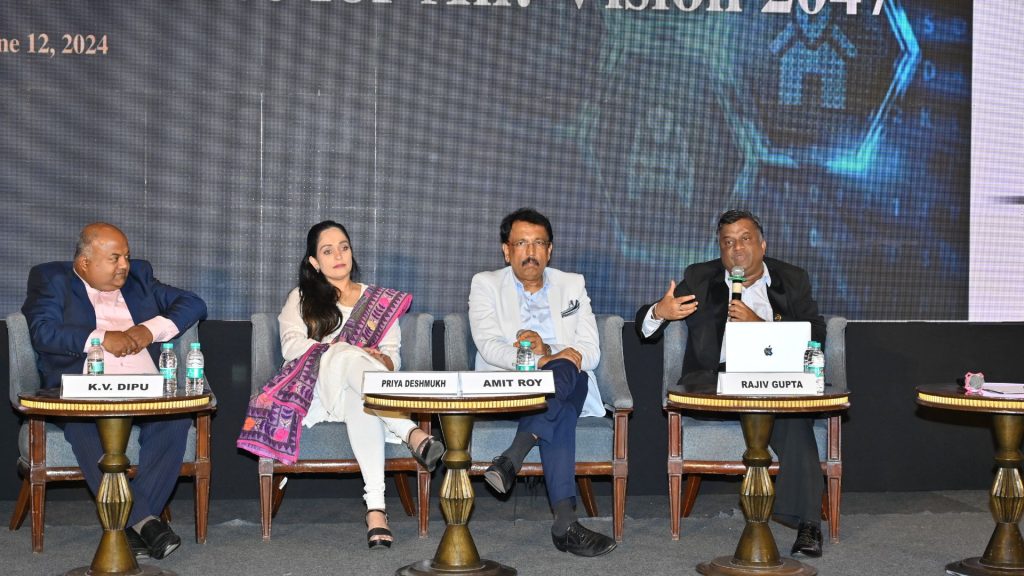
The summit featured two insightful panel discussions. The first panel, moderated by Amit Roy, Partner and Leader of Insurance & Allied Businesses at PwC India, included K V Dipu, Senior President at Bajaj Allianz General Insurance; Rajiv Gupta, President at PB Fintech and Priya Deshmukh, Head of Health Products, Operations & Services at ICICI Lombard. They discussed business model disruptions, the evolving role of distributors and agents, product innovation, and the importance of technology and InsurTech partnerships. The panelists also spoke about the need to glamorise the insurance industry as a career option to attract more youth into the sector.
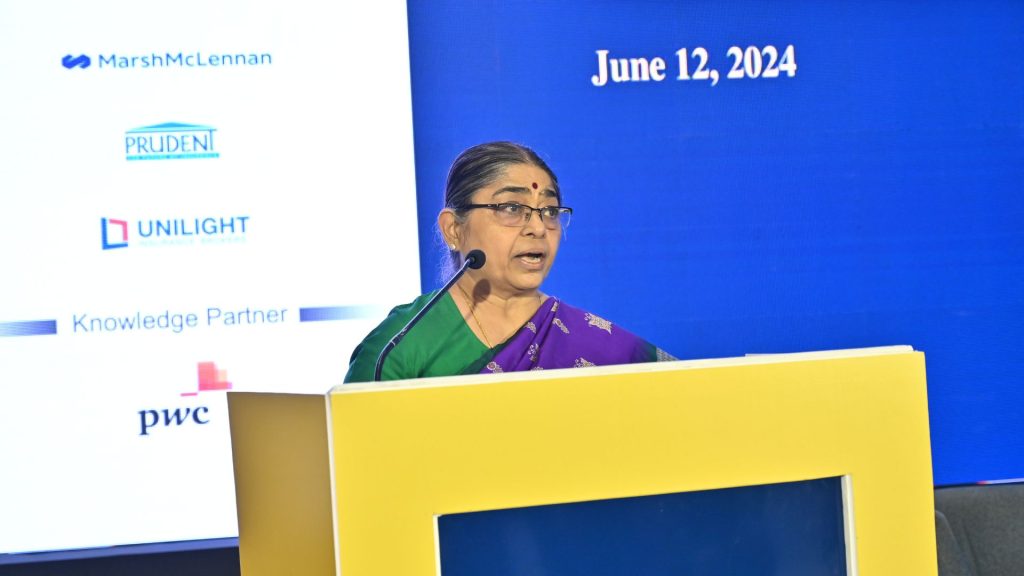
Delivering the Special Address, TL Alamelu, Principal Advisor at IFSCA and Former Member of IRDAI, spoke about the need for continuous investment in technology and process improvements to build trust and enhance transparency. She mentioned how the Indian insurance ecosystem is thriving, with regulators actively engaging stakeholders and adapting to industry needs, while the economy remains resilient and one of the fastest-growing globally, aiming to become a developed nation by 2047. This is an optimal time for the insurance sector, with a vision to ensure that every citizen and enterprise has appropriate coverage. Current insurance penetration is only 4%, but this figure may not accurately reflect true coverage due to small premium schemes like Pradhan Mantri Suraksha Bima Yojana (PMSBY) and Pradhan Mantri Jeevan Jyoti Bima Yojana (PMJJBY). Alamelu emphasised that to achieve insurance for all, innovative methods and headcounts are needed to accurately determine the number of insured individuals. The industry must prepare for explosive growth and target those without any coverage, utilising data and statistics to guide efforts.
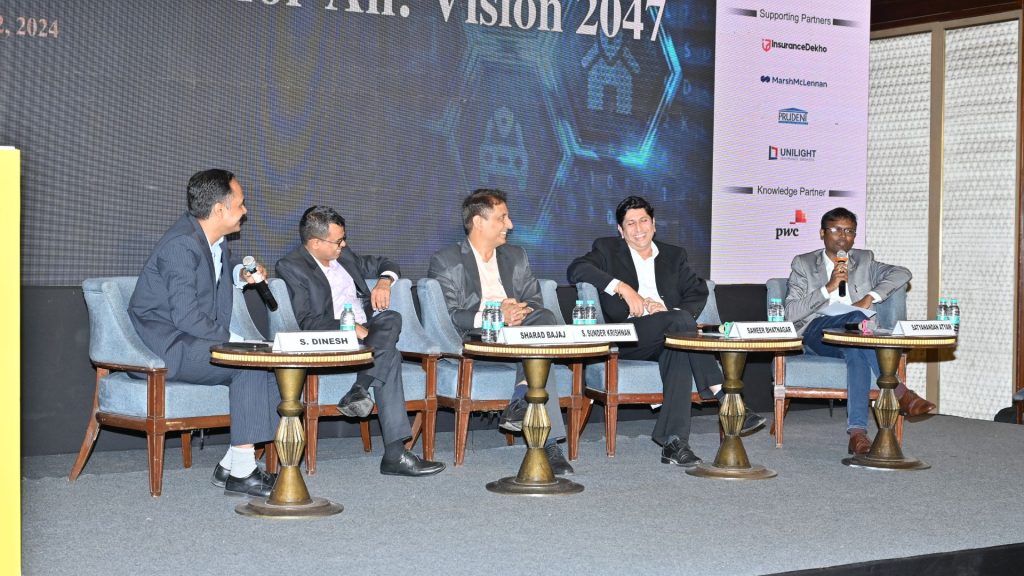
The second panel, moderated by S. Dinesh, Partner of Risk Consulting at PwC India, focused on “Emerging Risks & Possible Mitigation Towards Profitable and Sustainable Growth.” Panelists included Sharad Bajaj, COO of InsuranceDekho; S. Sunder Krishnan, Chief Risk Officer at LIC; Sameer Bhatnagar, Chief Compliance & Risk Officer, General Counsel & Head of Secretarial at Manipal Cigna Health Insurance Company; and Satyanandan Atyam, Chief Risk Officer at TATA AIG. The panel deliberated on various risks insurers face, including the impact of global market volatility on capital availability and investment portfolios, the increasing frequency of natural disasters and climate risk in underwriting, and concentration risks associated with climate and sustainability. They also discussed the challenges of adapting to new laws such as GST and IFRS 17, along with other regulatory changes. Additionally, they examined issues related to the adoption of new technologies, dependence on tech providers, competition from tech companies, and the availability of talent knowledgeable in insurance.








